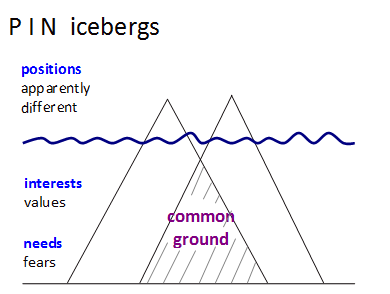Why negotiating is a skill you should learn

You might associate the skill of negotiation with big, high-flying bosses discussing huge business deals, or swanky salesmen who want people’s money, or negotiating with your parents how much rent you should be paying them (£0) now you’re grown up but still live at home(!). It probably hasn’t occurred to you that negotiation is something that you need on your job search, but also a useful skill for your future employment. It’ll work wonders when it comes to teamwork, but also help you be more assertive when trying to get your point across.
Take journalism: if I find the perfect case study for a feature that’ll make a great story, but they don’t want to be filmed, how can I negotiate a common ground, but still get good content for our readers? And how do you negotiate a really low offered salary into one that will actually pay your rent? Or negotiate working from home if your commute is really long? See? You need to negotiate more than you think.
What is Negotiation?
We enlisted the help of Charles Crawford, a negotiation expert and consultant who gives masterclasses in negotiation to clients, and knows a tad more than we do about the skill. “Negotiation is all about trading five fundamental things,” we’re told. Here they are:

To do that well you should look hard at your own Positions, Interests and Needs, and at those factors for the person you are negotiating with (your interviewer/potential employer). Charles says that your aim in negotiation is to establish a common ground around shared Interests and Needs.
And then comes Charles’ fancy diagram. One triangle is you and one is the person you’re talking to, and your aim is to be that shaded mini triangle in the middle.

People in negotiation have ‘objective’ power (i.e. who is boss, and who isn’t), but Charles says there are subjective factors too: boldness, determination, confidence, risk-aversion, caution, ruthlessness and so on. “The vital thing is being honest with yourself about what you really want, and how hard you are prepared to press to achieve it. Then making a plan for getting it that is robust enough to deal with inevitable setbacks!”
How to Negotiate
“The hardest skill in negotiation is (a) listening to what the other side says about its Interestsand Needs, and (b) showing you are listening respectfully.”
Are you good at listening? When you negotiate, it’s much too easy to get wrapped up in what YOU want, and not actually understanding what the other person wants from this situation, too. “It usually pays to spend the first half establishing those things before specific haggling begins,” Charles says. “That way both sides know what they’re dealing with.”
A great way to think about negotiating, is to think about disagreements you’ve had with family and friends:
- Step back and look what happened in terms of Positions, Needsand Interests
- Who offered what and in those terms, how was it offered?
- Did you reach an outcome that was fair?
Negotiation as a Job Hunter
Keep everything we’ve told you in mind and relate it to situations you might find yourself in as a job hunter – what’s there that might require negotiation and how do you go about it? Charles says that a brilliant practical technique is to use a ‘What if…’ question to tackle these issues. “This allows both sides creatively to exchange ideas without commitment,” he says.
A job interview: “What are you offering, and what can you expect to get in return? Ask them some questions about their attitude to rewarding success and commitment. What is their long-term vision for the organisation and the people in it? Such questions help you look strong and interested on a deeper level than usual,” says Charles.
Your salary: “You are in an objectively weak position. You have huge Needs, but an employer has a huge choice of candidates! The key thing is to project competence and confidence: you want the employer to believe that she/he will be better off by employing you and not the other candidates. “What if I do really well in my first six months? Might you see your way to stepping up the salary a notch?” Ask directly if there is any flexibility on the salary or working methods, but in doing so show that you see the employer’s point of view:“To be quite honest, on this salary I’ll struggle to afford the rent and the commute!” [Read our first salary guide here.]
Suzie Cuddy is the UK Resourcing Advisor at O2′s Telefonica, so we asked her advice on how she suggests we negotiate salary, especially if you’re offered a salary that will barely cover your outgoings. “Never take a job that would cover your means. Not only will this lead to obvious financial strains like serious issues of not being able to pay rent or bills etc, but it could also lead to serious stress. Stress is never what you want out of a job and being in a job that means you cannot support yourself will only cause unnecessary stress.”
“Talk to the company and explain to them your situation and how much you would love to work for them but it just would not be financially viable for you. If they really want you and are really interested they will do something to get you on-board.”
Working flexibly: “It does no harm to attempt a negotiation of sorts in a job interview as long as it is done in a sensible, constructive way. That in itself projects adult confidence. ‘What if you look at allowing me to work from home three days a fortnight after I have proved myself for a couple of months?’
“Note that in both these cases you are trading Resources/Control around the idea of Time,” says Charles.
Bottom Line? If you don’t know what you want, don’t be surprised if you don’t get it.
